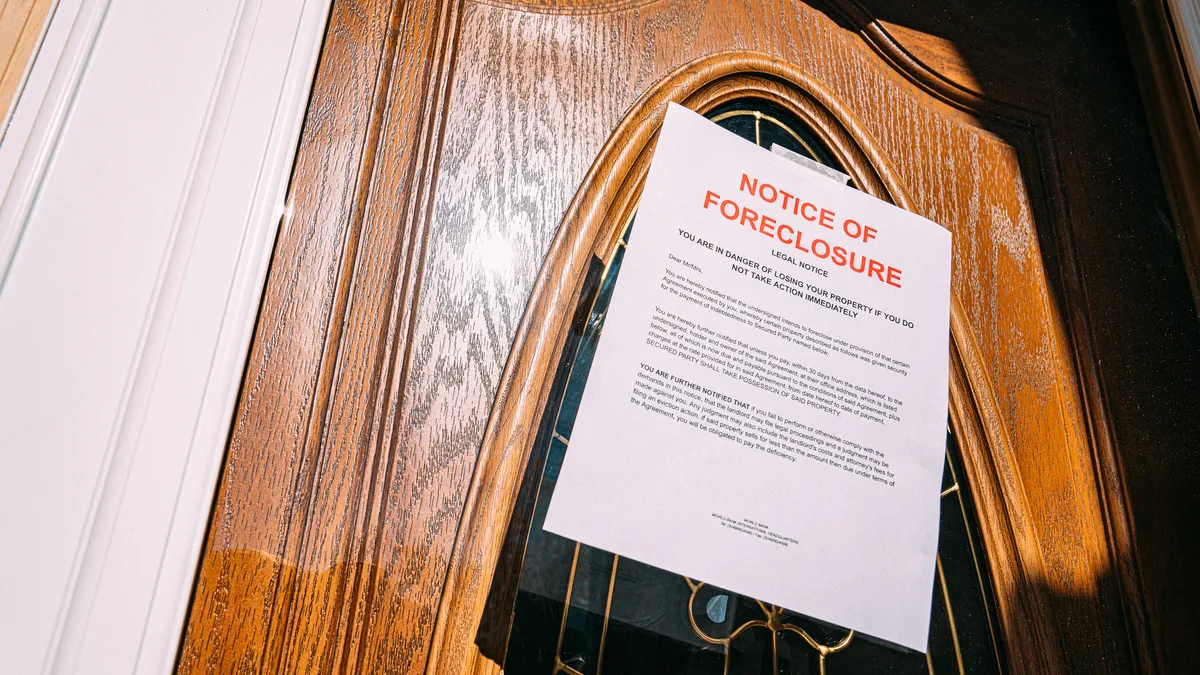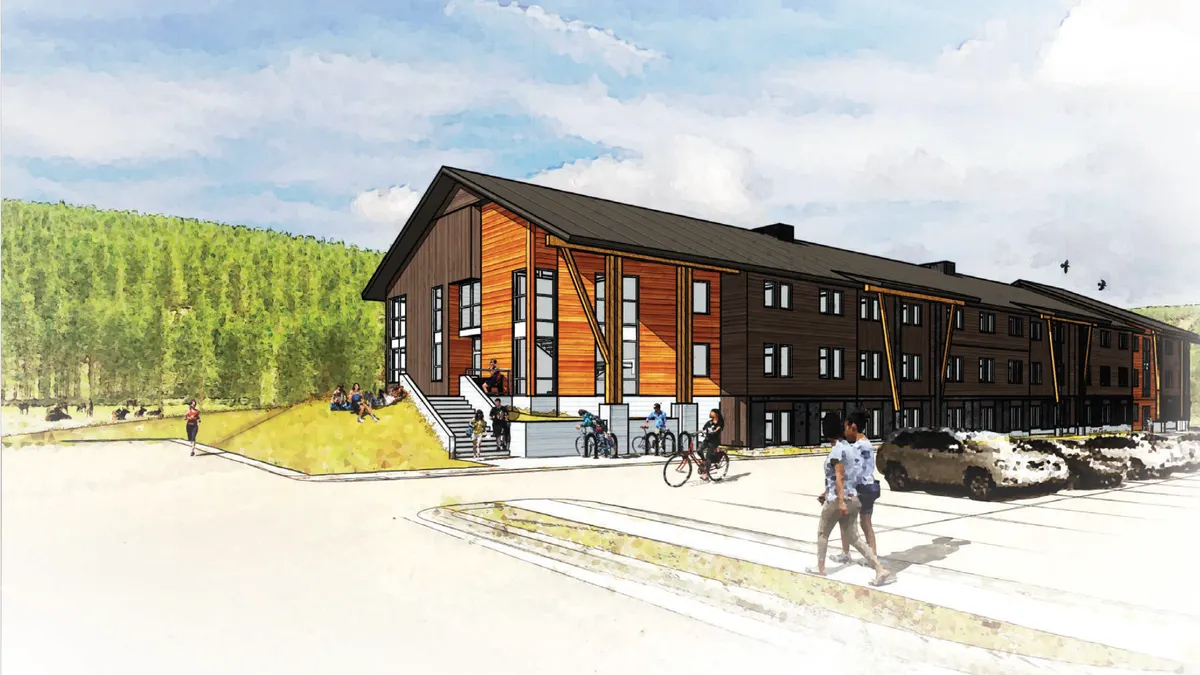Dive Brief:
- Multifamily commercial mortgage-backed securities loan delinquencies for apartments jumped 113 basis points to 6.57% in April, according to a report from Trepp. The data firm’s servicing rate increased 28 bps to 8.59%.
- A year ago, the delinquency rate for apartments was 1.33% — meaning it has risen 524 basis points over the past 12 months. The CMBS delinquency rate for apartments has reached its highest point since March 2015, when it was 8.28%, according to Trepp.
- Increases in the lodging sector delinquency rate, which saw a 66 bps rise to 7.85%, and the multifamily rate pushed overall commercial real estate distress 38 bps to 7.03%. The CRE delinquent balance was $41.9 billion, compared with $39.3 billion in March.
Dive Insight:
Despite the rise in delinquencies, other indicators show commercial distress falling.
CRED iQ’s distress rate, which captures loans 30 or more days delinquent and those in special servicing, fell by 30 basis points to 10.3% in April.
“This marks the third straight month of declines, signaling potential relief in the CRE sector after a period of heightened volatility,” CRED iQ’s report said.
However, CRED iQ’s delinquency rate inched up from 7.9% to 8.0%, and the special servicing rate rose 20 basis points to 9.9%.
CRED iQ analyzed the $52.9 billion in distressed CRE CMBS loans and found that 15.7% remain current and 25.7% are delinquent. Another 58.6% have passed their maturity date: 16.6% are performing (down from 20.0%), while 42.0% are non-performing (up from 36.3%).
“This shift in matured loans underscores the challenges borrowers face in refinancing or resolving loans in a high-interest-rate environment, a trend that could impact CMBS portfolio performance if it persists,” CRED iQ wrote.
While the delinquency and servicing numbers may be increasing, apartment buyers still aren’t seeing waves of distressed properties hitting the market.
“There haven't been a lot of forced transactions,” Dan Dooley, chief investment officer for Columbus, Ohio-based real estate investment manager Coastal Ridge, told Multifamily Dive. “But as this has rolled on, capital has a timer on it, and funds come to an end. It really felt like we were starting to get to the point where we were going to see a lot more transactional activity in 2025.”
Click here to sign up to receive multifamily and apartment news like this article in your inbox every weekday.









